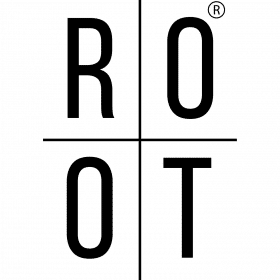Collagen has become increasingly popular in recent years – especially in the health and beauty industry – and when you consider the potential benefits of collagen, it’s easy to see why. However, there’s been some confusion about the difference between hydrolyzed collagen and peptides. In today’s post, we aim to explain what these differences are and how, by knowing these differences, you can make more informed decisions about what collagen supplement is right for you.
We’ll also show you the benefits of Give Me Back My Youth (GMBMY), an industry-leading product that promotes anti-aging and various other health benefits through a custom blend of collagen and colostrum.
What Are Collagen Peptides?
In simple terms, these peptides come from animal collagen, and they’re created by breaking down whole proteins into much smaller pieces. When these proteins are incorporated into a collagen supplement, they may offer a number of health benefits, including improving skin health and supporting joint function.
A collagen peptide is rich in proline, glycine, and hydroxyproline, and it also includes eight of the nine amino acids the body needs to function optimally.
What is Hydrolyzed Collagen?
Hydrolyzed collagen is another form of collagen, but this one is different because it’s undergone a process called hydrolysis. This essentially means that collagen proteins have been broken down into smaller ones, which are much easier for your body to digest.
As a result of this breakdown, there are short chains of amino acids instead of longer ones. These shorter chains make it much easier for your body to absorb amino acids, getting them into your digestive system faster and more efficiently.
What’s the Difference Between Hydrolyzed Collagen and Collagen Peptides?
Some people may be surprised to know that there is no difference between collagen peptides and hydrolyzed collagen. Both terms are correct, and they’re used interchangeably. The real difference lies in the semantics:
“Collagen peptides” means the product derived comes directly from collagen, while “hydrolyzed collagen” refers to the process by which these peptides are actually created. Now, in most cases, this “creation process” involves breaking down raw collagen – usually from bones or organs – into smaller peptides, which, when consumed, may offer skin, joint, and overall health benefits.
What are Amino Acids?
Amino acids are essentially the “building blocks” behind proteins. These are crucial for a wide variety of bodily functions. There are 20 different types of amino acids, and they all combine in unique ways to form various proteins.
Now, from these 20, nine are considered essential amino acids. This means our bodies can’t produce them naturally, so we must obtain them from diet instead. The other 11 are called non-essential amino acids, as our body can produce them naturally.
Amino acids control a vast range of functions, including hormone production, neurotransmitter function – and even energy metabolism!
What are the Benefits of Taking Hydrolyzed Collagen Peptide Supplements?
Collagen hydrolysate supplements have become an increasingly popular way of helping users get enough collagen protein, and there are numerous potential health benefits that users can enjoy. Below, we’ll explore some of the most common benefits users see when taking collagen hydrolysate supplements.
Collagen Supplements Help Replace What’s Naturally Lost Through Aging
As we age, our body’s natural collagen production decreases. Some research has shown that collagen hydrolysate supplements can help to “replenish” this loss and, in the process, support healthy skin elasticity, overall joint health, and general health and wellbeing.
Collagen is an Easy-to-Digest Source of Protein
Collagen hydrolysate peptides, as with all collagen protein supplements, allow for the breaking down of the proteins into smaller, more digestible molecules. As a result of these smaller collagen fibers, the body is able to use them more efficiently, making them an excellent protein source for the human body – especially for those with sensitive stomachs or digestive issues.
Collagen Helps Smooth Wrinkles and Boost Skin Elasticity
Regular collagen supplementation has been shown to improve skin hydration and elasticity in some people. As a result, collagen may help to reduce the appearance of fine lines and wrinkles. For those who take collagen hydrolysate supplements frequently, this may result in a more youthful complexion!
Collagen Helps Lessen Joint Aches and Pains
Joint pain is something many of us experience, especially as we get older. Promisingly, some studies show that hydrolyzed collagen supplementation routine can soothe tissues, reduce joint pain after exercise, and aid in cartilage repair!
An Oral Collagen Supplement May Promote Gut Health
Research has also shown a potential link between collagen supplementation and improved gut health. The benefits are seen particularly in those suffering from conditions like irritable bowel disease. Hydrolyzed collagen supports connective tissues in the colon and the GI tract, which may aid gut healing while also reducing inflammation.
Collagen May Improve Your Heart Health
While more studies are needed, some early research shows that collagen supplementation may benefit heart health. It achieves this by improving what we call markers of atherosclerosis. In turn, the human body then sees reduced cholesterol levels. For some, this might contribute to a healthy heart, thus reducing the risk of coronary artery disease.
What are the Side Effects of Hydrolyzed Collagen Peptides?
Hydrolyzed collagen peptides are generally seen as very safe. With the range of potential health benefits they provide, it’s easy to see why millions of people worldwide take a hydrolyzed collagen supplement each day.
However, as with any supplement or medication, there can be side effects. Below, we’re going to explore some of the most common ones. You should always contact your doctor or health professional if you begin taking collagen hydrolysate supplements and find yourself experiencing any side effects.
Nausea: A Common Concern
One of the most common side effects of taking collagen supplements is nausea. The likelihood of this occurring appears to increase if a larger dosage is taken or the supplement is taken in one go.
Digestive Issues: Bloating, Gas, and Cramps
Digestive discomfort, including bloating, gas, or stomach cramps, may occur in some people after taking a collagen protein supplement. Again, there’s a higher chance of these symptoms occurring if larger doses are taken or the user has an intolerance or sensitivity to the protein.
Allergic Reactions: A Risk for Some
Whether you take collagen powder or even liquid-based collagen peptide supplements, it’s important to remember that they’re made by breaking animal collagen down from a complete protein into more digestible molecules. As a result, those with allergies to animals – or even animal products – may risk developing an allergic reaction by taking a collagen protein supplement.
Potential Interactions with Medications
Collagen peptides can, in some situations, interfere with certain medications and can include (but are not limited to) blood thinners, anti-inflammatory drugs, and diabetes treatments. Always consult your physician or healthcare provider before taking a collagen peptide supplement.
Effects on Blood Sugar Levels
Everyone’s blood sugar levels are different, and some people with diabetes or pre-diabetes, for example, may find that collagen peptides affect blood sugar levels. You should always monitor your blood sugar levels closely when you begin taking a collagen protein supplement.
Liver Injury: A Rare but Serious Side Effect
While it’s very rare, it’s also important to realize there have been some instances of liver injuries as a result of taking collagen supplements. While researchers aren’t sure why this link occurs, this is one of the rare side effects you should be aware of, and it’s yet another reason why you should always monitor your health when taking collagen protein supplements.
How to Choose the Right Collagen Supplement
Collagen supplements can be a powerful tool for some, offering a natural remedy to some of the signs of aging: dry skin, painful joints, and less resilient muscles. However, there are a few things to consider before you decide to begin taking a collagen protein supplement, which we’ll cover below:
Types of Collagen: The first thing you should consider is what you actually want from a collagen supplement. Do you, for example, want improved skin elasticity? Stronger bones? Joint health? Remember that different types of collagen target different areas of the body, and choosing the right supplement for you and your goals is critical.
Ingredients: You should also consider the ingredients used. High-quality supplements like GMBMY will always disclose their sources and the types of collagen included.
Bioavailability: Another thing to consider is bioavailability. Hydrolyzed collagen peptides, for example, offer better absorption, making it suitable for those wanting to get the absolute most out of the supplement.
Give My Back My Youth – Collagen and Colostrum From The ROOT Brands
Give Me Back My Youth (GMBMY) is a powerful supplement from The ROOT that is known for being one of the world’s premium collagen supplements, offering a unique blend of hydrolyzed collagen peptides and colostrum. This powerful collagen supplement provides a variety of anti-aging benefits in some, including improved skin elasticity, joint health, and overall health and well-being.
What makes GMBMY so unique is its high levels of purity and quality. The supplement contains zero added ingredients. This means it only contains high-quality sources of collagen and colostrum. This formula ensures you get the most potent and bioavailable compounds without any unnecessary fillers or additives.
If you’re looking for a collagen protein supplement that’s designed to give you maximum benefit – without unnecessary ingredients – GMBMY is something you’ll want to check out. Learn more by clicking here and get your supply today!




 What is ROOT Prime and what are its Benefits?
What is ROOT Prime and what are its Benefits?